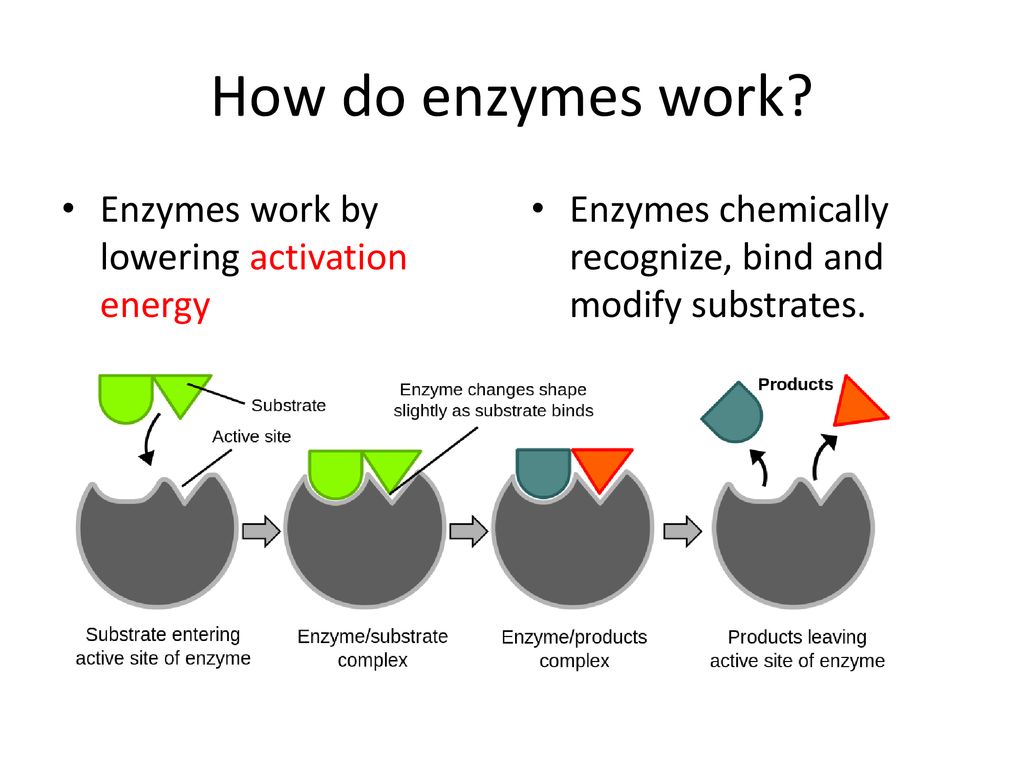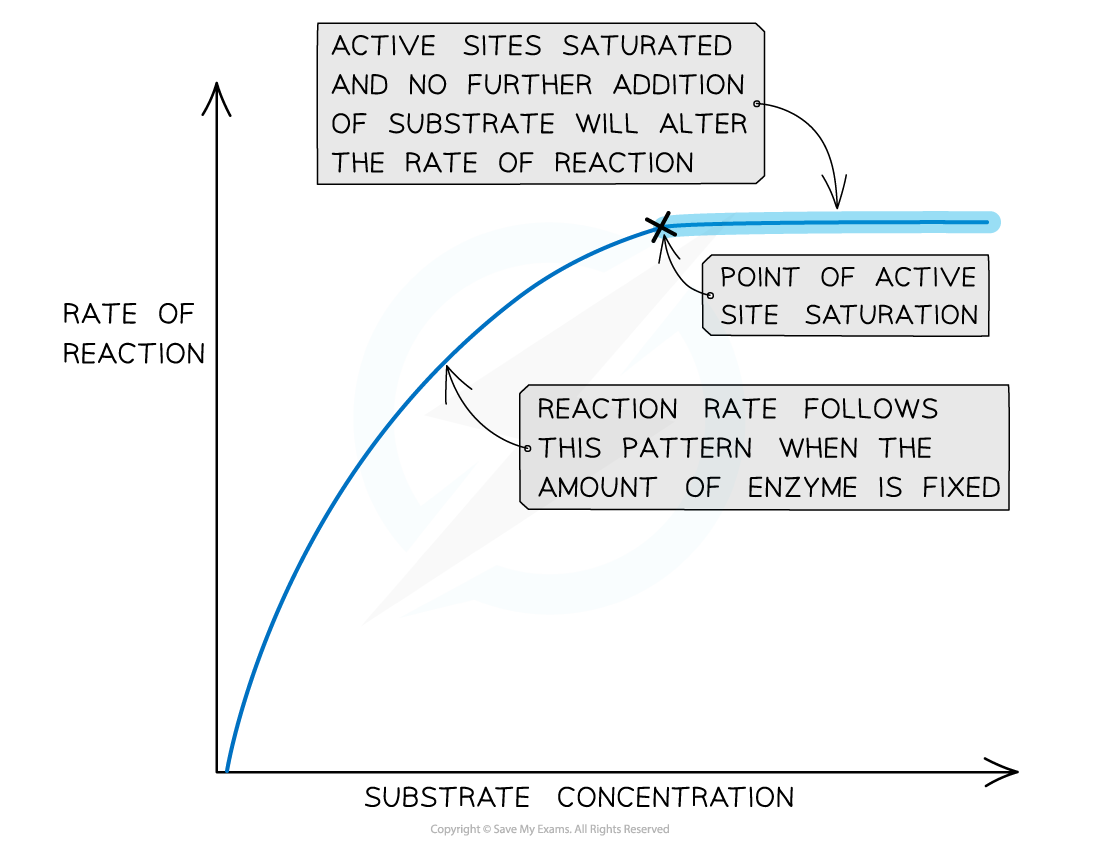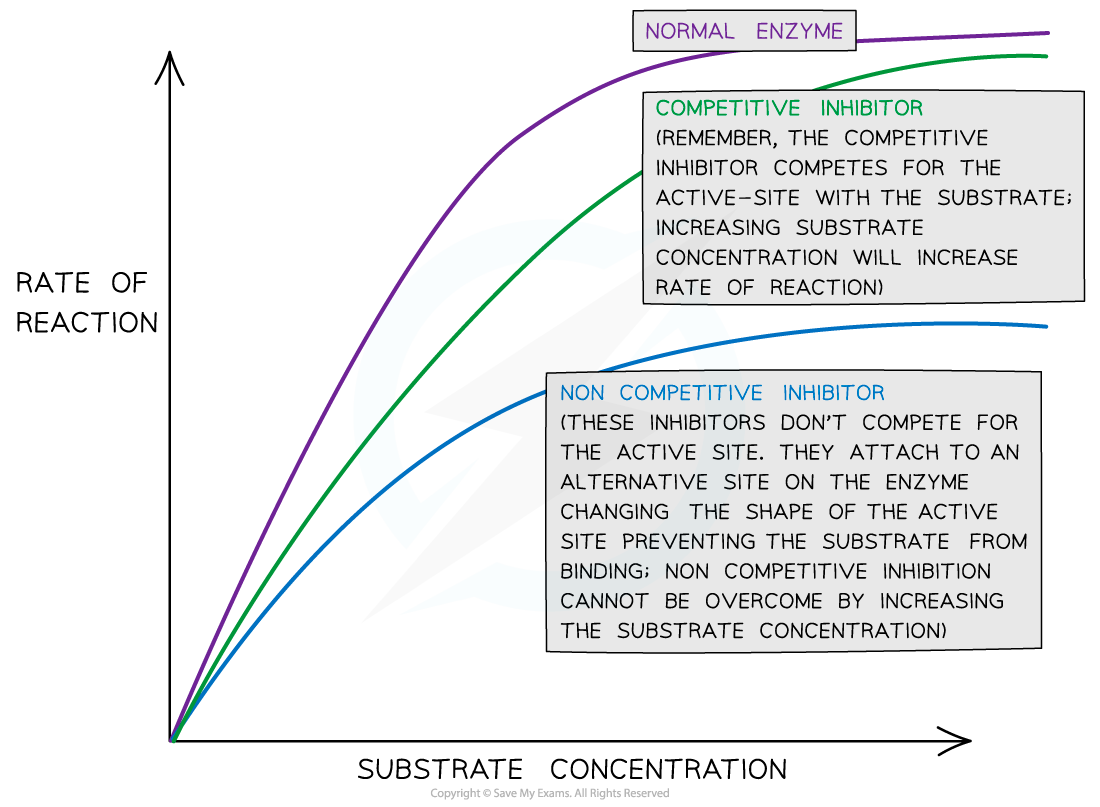How Does An Enzyme Affect The Rate Of A Reaction Enzymes lower the activation energy of a reaction increasing the reaction rate There is an explanation video available below Thank you for reporting this comment How does an enzyme affect the rate of a reaction
Overall enzymes increase the rate of chemical reactions by providing an alternative reaction pathway with lower activation energy allowing reactions to occur more quickly and efficiently than they would without the enzyme Higher temperature generally causes more collisions among the molecules and therefore increases the rate of a reaction More collisions increase the likelihood that substrate will collide with the active site of the enzyme thus increasing the rate of an enzyme catalyzed reaction
How Does An Enzyme Affect The Rate Of A Reaction

How Does An Enzyme Affect The Rate Of A Reaction
https://i.ytimg.com/vi/EeovHW0nBJ8/maxresdefault.jpg

2 1 4 Enzymes PART 1 F The Effects Of Inhibitors On The Rate Of Enzyme
https://i.ytimg.com/vi/B4uJxzNyrZk/maxresdefault.jpg
DIAGRAM Diagram Of Enzyme Temperature FULL Version HD Quality Enzyme
https://d1e4pidl3fu268.cloudfront.net/2cb50579-f2df-4faa-92c4-9f9ad207dab2/Capture.crop_880x660_7,0.preview.PNG
There are a number of factors that affect the rate of enzyme activity Temperature affects enzyme catalysed reactions by influencing the rate at which they occur For a reaction to occur between an enzyme and substrate the two molecules need to collide Sep 17 2020 nbsp 0183 32 To describe how pH temperature and the concentration of an enzyme and its substrate influence enzyme activity The single most important property of enzymes is the ability to increase the rates of reactions occurring in living
Mar 25 2025 nbsp 0183 32 The molecule s that result from the enzyme catalyzed reaction Substrate The specific reactant molecule upon which an enzyme acts Transition State A high energy unstable intermediate stage in a reaction that enzymes help stabilize Vmax The maximum rate of an enzyme catalyzed reaction when all active sites are occupied Jan 18 2020 nbsp 0183 32 Some of the factors that affects the rate of enzyme reaction are The rate of reaction is proportional to the enzyme concentration provided that the substrate concentration at high level If the enzyme concentration is increases
More picture related to How Does An Enzyme Affect The Rate Of A Reaction

Identify And Investigate The Role Of Enzymes Ppt Download
https://slideplayer.com/slide/15328403/92/images/5/How+do+enzymes+work+Enzymes+work+by+lowering+activation+energy.jpg

CIE A Level Biology 3 2 4 Rate Substrate Concentration
https://oss.linstitute.net/wechatimg/2022/08/The-effect-of-substrate-concentration-on-an-enzyme-catalysed-reaction-3.png

Enzymes And Reaction Rates
https://www2.nau.edu/lrm22/lessons/enzymes/reaction_rate_curve.png
Oct 23 2020 nbsp 0183 32 Enzymes act as catalysts in living organisms regulating the rate at which chemical reactions proceed without itself being altered in the process Enzymes can be used to make and improve nearly 400 everyday consumer and commercial products Describe how pH temperature and the concentration of an enzyme and its substrate influence enzyme activity The single most important property of enzymes is the ability to increase the rates of reactions occurring in living organisms a property known as catalytic activity
[desc-10] [desc-11]

Concentration Enzyme Reaction Rates Effects Role Expii
https://d20khd7ddkh5ls.cloudfront.net/enzyme_activity_concentration.jpg

AQA A Level Biology 1 4 12 Limiting Factors Affecting Enzymes
https://oss.linstitute.net/wechatimg/2022/06/The-effect-of-inhibitor-concentration-on-an-enzyme-catalysed-reaction.png
How Does An Enzyme Affect The Rate Of A Reaction - Mar 25 2025 nbsp 0183 32 The molecule s that result from the enzyme catalyzed reaction Substrate The specific reactant molecule upon which an enzyme acts Transition State A high energy unstable intermediate stage in a reaction that enzymes help stabilize Vmax The maximum rate of an enzyme catalyzed reaction when all active sites are occupied
